




04 Lawless: While we strive to change education, we must rediscover education that is constantly changing
06 Education faculty explore use of artificial intelligence in classroom
08 Researchers examine nuances of parental advocacy in special education
09 College of Education faculty: Dual language model shows promise for second-language learners
This publication is available in alternative media on request. The University is committed to equal access to programs, facilities, admission and employment for all persons. It is the policy of the University to maintain an environment free of harassment and free of discrimination against any person because of age, race, color, ancestry, national origin, religion, creed, service in the uniformed services (as defined in state and federal law), veteran status, sex, sexual orientation, marital or family status, pregnancy, pregnancy-related conditions, physical or mental disability, gender, perceived gender, gender identity, genetic information or political ideas. Discriminatory conduct and harassment, as well as sexual misconduct and relationship violence, violates the dignity of individuals, impedes the realization of the University’s educational mission, and will not be tolerated. Direct all inquiries regarding the nondiscrimination policy to the Office of Equal Opportunity and Access, The Pennsylvania State University, 328 Boucke Building, University Park, PA 16802-5901, Email: oeoa@psu.edu, Tel (814) 863-0471. UBR EDU 24-287
10 College of Education highlights flexible, accessible degree programs
12 SCOPE helps make education careers accessible to everyone
14 Seebacher pursues passion for music — and for teaching
16 College of Education student brings history to life during WWII re-enactment

18 Journey Success Center helps students meet challenges of college life
20 Krause Pedagogical Innovation Laboratory officially dedicated with ribbon cutting ceremony
22 DDC chair: College of Education producing students with academic and emotional intelligence
DEAN Kimberly A. Lawless EDITOR Brian D. Cox WRITERS Brian D. Cox | Jaden Greenwald | Kimberly Haig | Stephanie Koons PHOTOGRAPHERS Brian D. Cox | Peter Terpstra CONTACT Penn State College of Education | 247 Chambers Building | University Park, PA 16802 | ed.psu. edu COLLEGE OF EDUCATION ALUMNI SOCIETY OFFICERS Dr. Catherine T. Tomon, president | Jhan D. Doughty, president-elect | William Clark, secretary | Jonathan Klingeman, immediate past president DIRECTORS Bernard Badiali | Brian Bliss | William Clark | Molly Dallmeyer | Kiley Foley | Krishawna Goins | Julie Henry | Sherry Hibbard | Alexa Hodge | Terrance Jefferson | Sarah Lozano | Deborah Marron | Ronald Musoleno | Kizzy Nicholas | Kurt Nyquist | Matt Richards | Sandra Rodriguez-Arroyo | Sharon Salter APG REPRESENTATIVES Wally Richardson | Mia Hines STUDENT MEMEBERS Elizabeth Smith | Sloan Cordon | Semra Sonmez
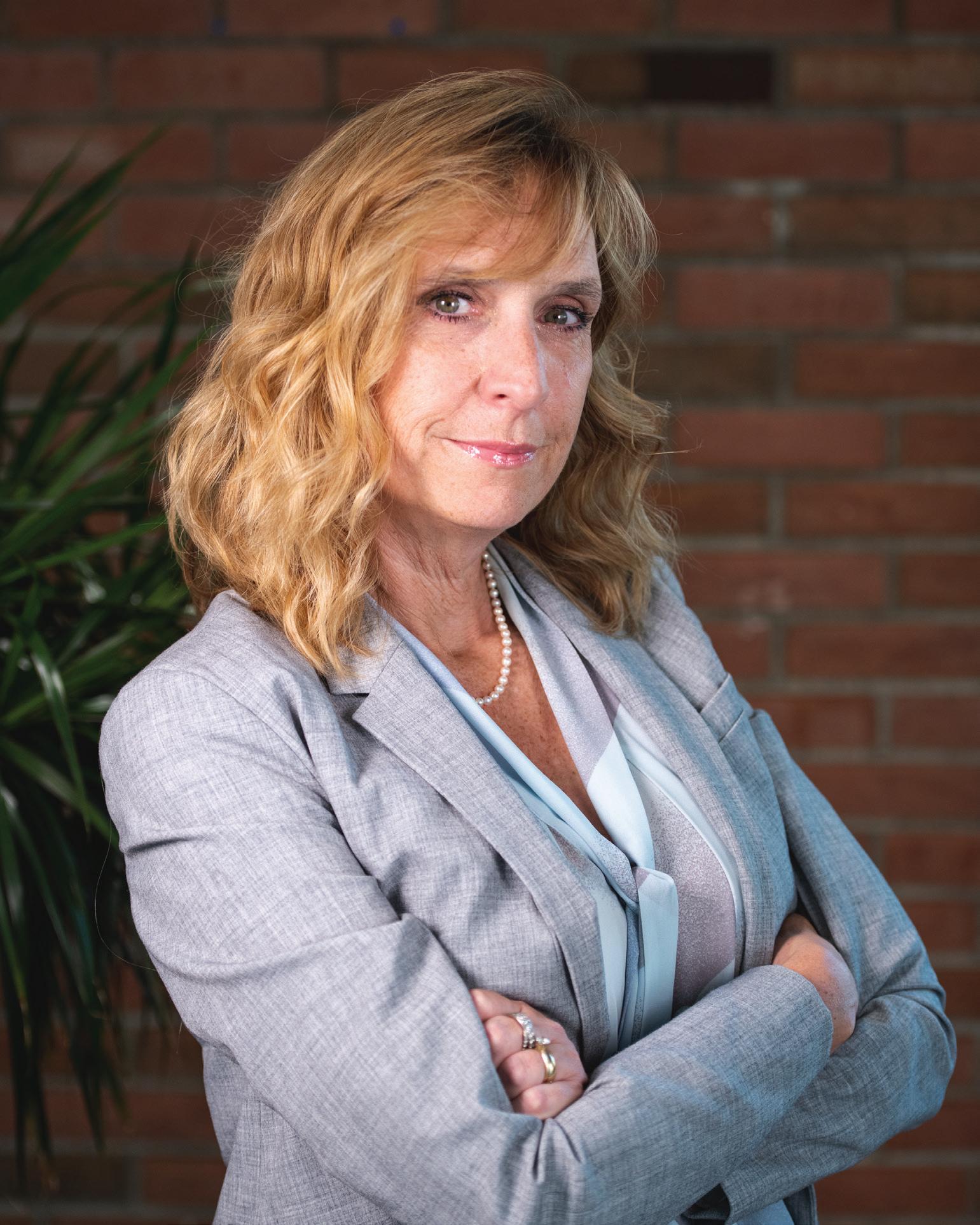

Like our world, the Penn State College of Education is constantly moving forward and evolving. Whether that’s applying the latest approaches and techniques to the classroom, the future of technology and artificial intelligence and how they’ll be used to teach, the spectrum of how people learn differently or anything else, education is not a static entity. So, we as an education college must adapt ourselves not to what the world was, but what the world will be.
Which brings us to this magazine, the theme of which is rediscovering education. We feel as though we are at the dawn of a new era of learning and as a result, we have the opportunity to fundamentally transform not only what the next generation of students is taught, but the way they are taught and how they are supported while being taught.
In this edition, you’ll read about the new approaches to teaching students for whom English is not their first language and how they and other students benefit from dual-language learning. Inside, we share the story of how our very own Summer College Opportunity Program in Education, better known to us as SCOPE, makes a tangible impact in the lives of students from traditionally underrepresented and/or minoritized backgrounds while helping the college live up to its stated mission.
Additionally, you’ll hear about a College of Education student who
traveled to France to participate in a re-enactment in the name of his love of studying the history of World War II and another student who is pursuing a teaching career while also chasing her dreams as a talented singer.
We are incredibly proud that — with a wonderful gift from Allen and Judith Weltmann — we have opened the Journey Success Center, which strives to help students navigate the transition to college life so they can accomplish their personal, academic and professional goals.
I would be remiss in this discussion of rediscovering education if I did not bring to your attention the newly dedicated Krause Pedagogical Innovation Laboratory. It is the latest space in our college made possible by the advocacy for education by and overwhelming generosity of College of Education alumna Gay Krause and her husband Bill. I am not exaggerating when I say this space will make an immeasurable impact on generations of future educators who attend Penn State.
And as always, I am deeply appreciative for the support of all of you, our friends and alumni. Without you, we would not be able to shape the lives of young people, both our current students and the young people with whom they will one day work. Thank you for all you do for our college. I wish you all the most joyous of holiday seasons and a most wonderous new year.
We are!

Kimberly A. Lawless Dean, Penn State College of Education
By Stephanie Koons
The generative artificial intelligence (AI) revolution is altering the landscape in higher education. Generative AI, which is capable of generating text, images and videos, can enhance learning experiences. However, as highlighted in a report by global higher education outlet Inside Higher Ed, there are also concerns about the quality of education delivered
through AI-driven platforms as well as ethical issues such as plagiarism and environmental harm.
Penn State College of Education faculty members are working to help students harness the powers of AI by becoming active, responsible practitioners of the technology while also understanding its challenges.


By Stephanie Koons
Penn State College of Education faculty members are exploring the role of early intervention for students with autism spectrum disorder (ASD) and related intellectual and developmental disabilities (IDD) in the context of using parent/caregiver support.
Their goal is to aid children’s developmental journey and learning about the strengths and challenges that families with intersecting identities experience in advocating for their children.
SCAN OR CLICK THE QR CODE TO READ THIS STORY:
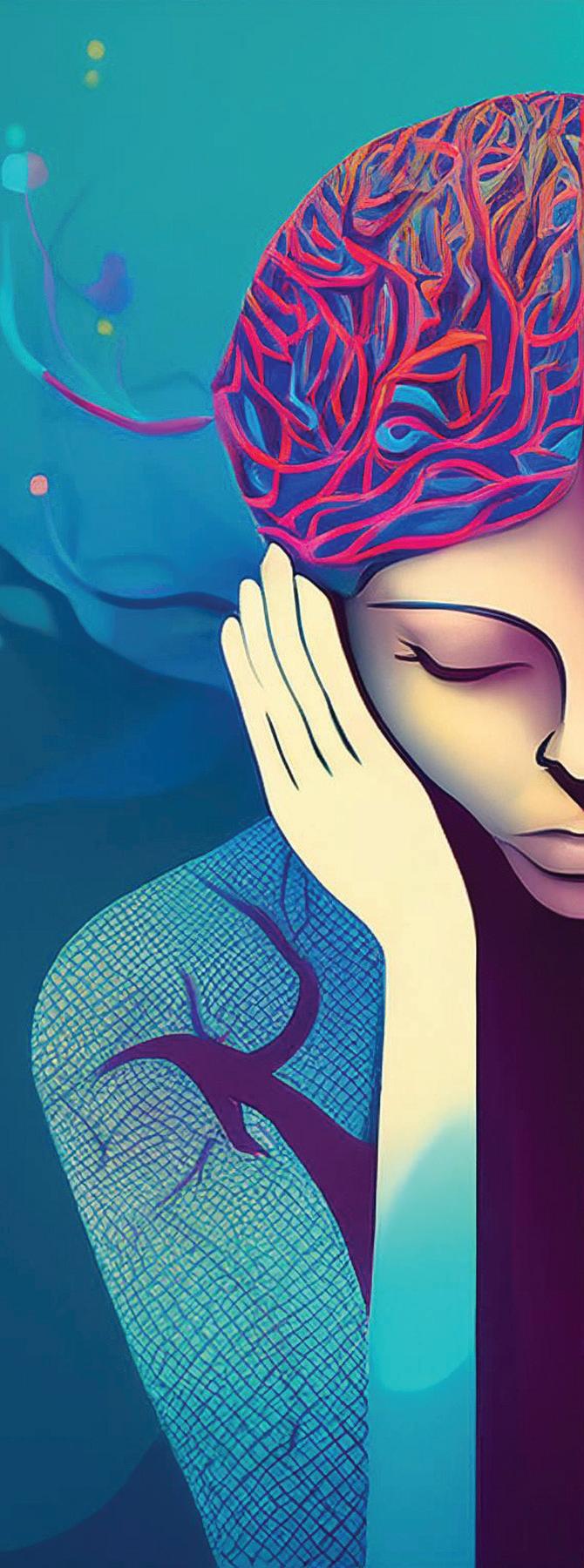
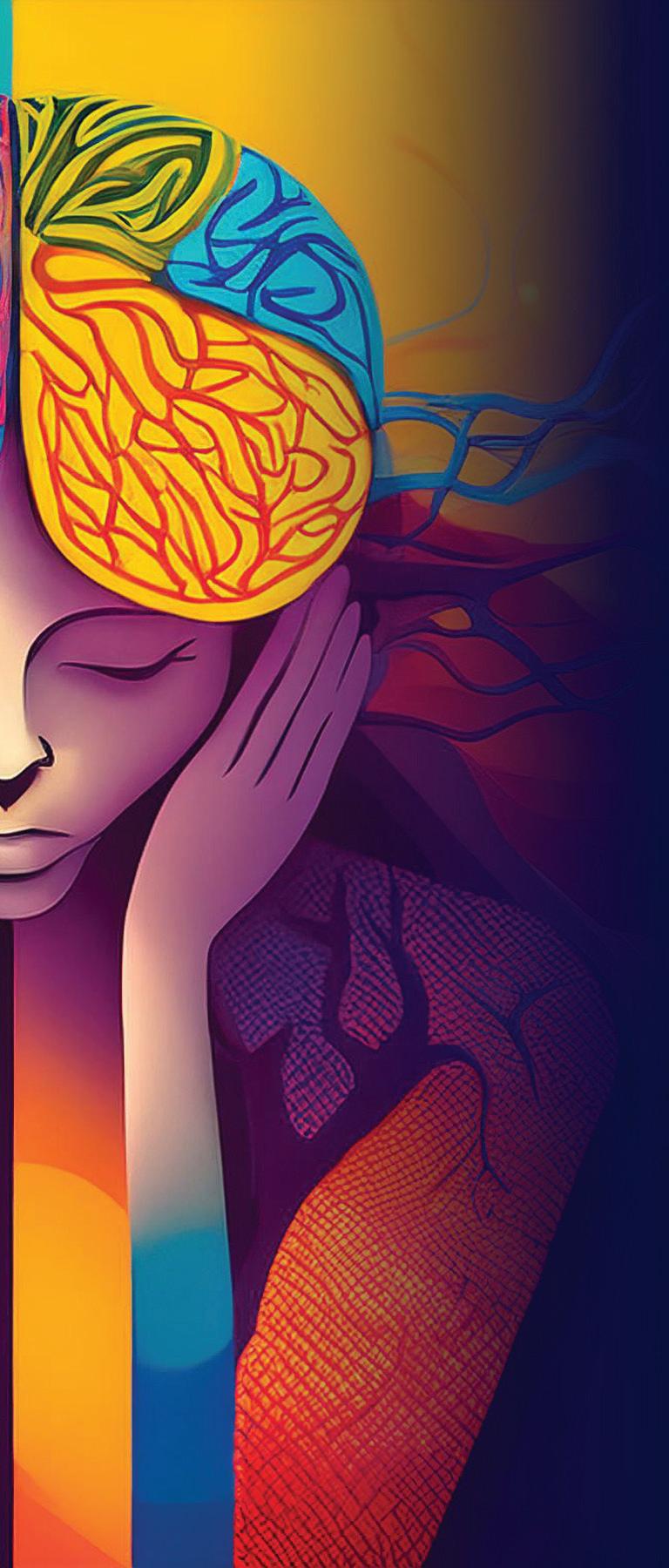
By Brian D. Cox
As challenging as school can be for any student, those whose first language is not English face even greater obstacles with which many public schools are un- or underequipped to address.
However, a dual-language learning model shows promise for both for students learning English and those for whom English is their first language, according to two Penn State College of Education faculty members.
By Stephanie Koons
The Penn State College of Education offers degree programs that focus on flexibility, career alignment and accessibility. These approaches are intended to appeal to both non-traditional students and students who may be interested in studying education but not necessarily in pursuing a traditional teaching career.
With the new College of Education doctor of education (D.Ed.) program offered through Penn State World Campus, non-traditional students who live across the globe now have an opportunity to earn an education degree from Penn State.
Some prospective education students may want to take a different path than a traditional teaching career. The College of Education’s bachelor of science program in education and public policy (EPP) helps prepare tomorrow’s advocates, policy makers, school leaders, researchers and administrators by taking a deep dive into the meaning of education and change. The program focuses on the integral relationships between education and history, sociology, political science and philosophy.

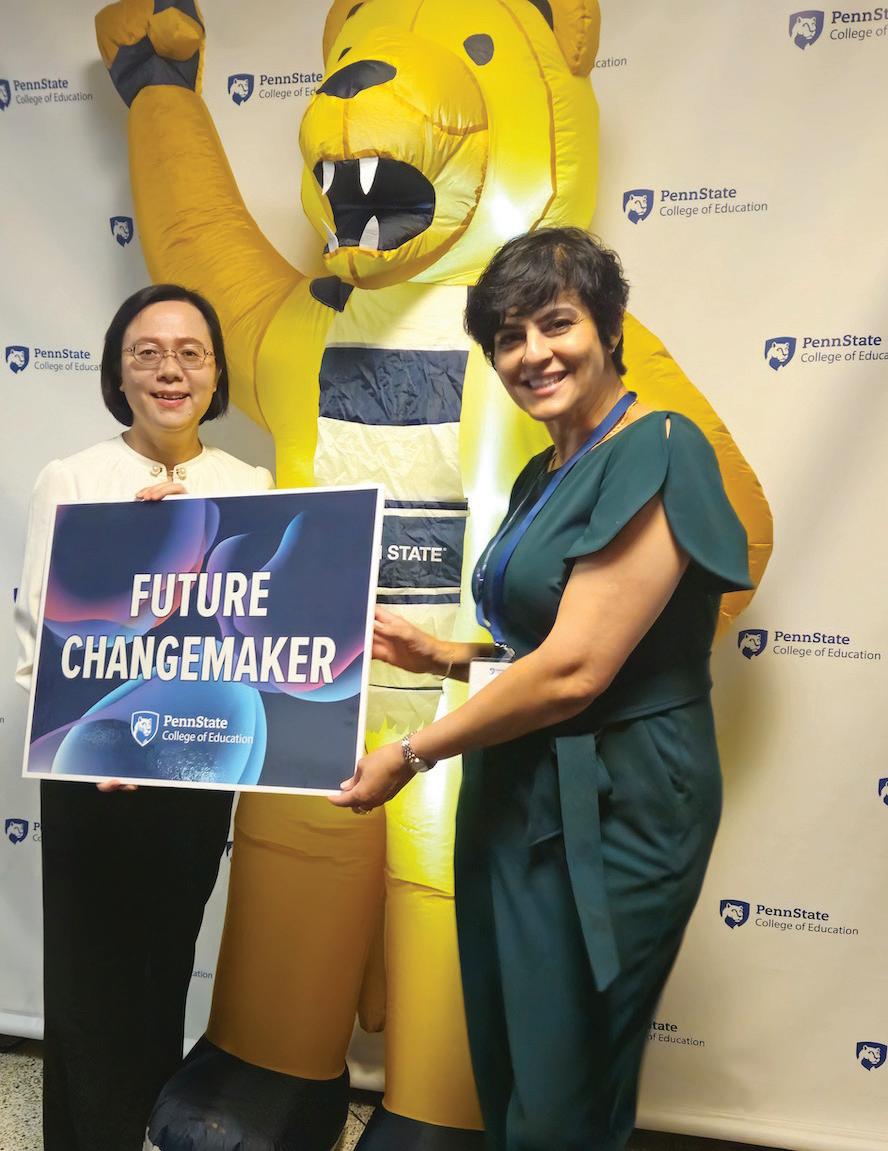
By Brian D. Cox
The Penn State College of Education’s mission is to change education by educating for change. Arguably nothing better encapsulates this mission than the Summer College Opportunity Program in Education, known as SCOPE. Having welcomed its 22nd cohort this past summer in its 23rd year of existence (the program was not held in 2020 due to the COVID-19 pandemic), SCOPE invites approximately 20 students who have recently completed the 10th grade from underserved and/or minoritized backgrounds who have expressed an interest in an education career to come to campus for several weeks in the summer.
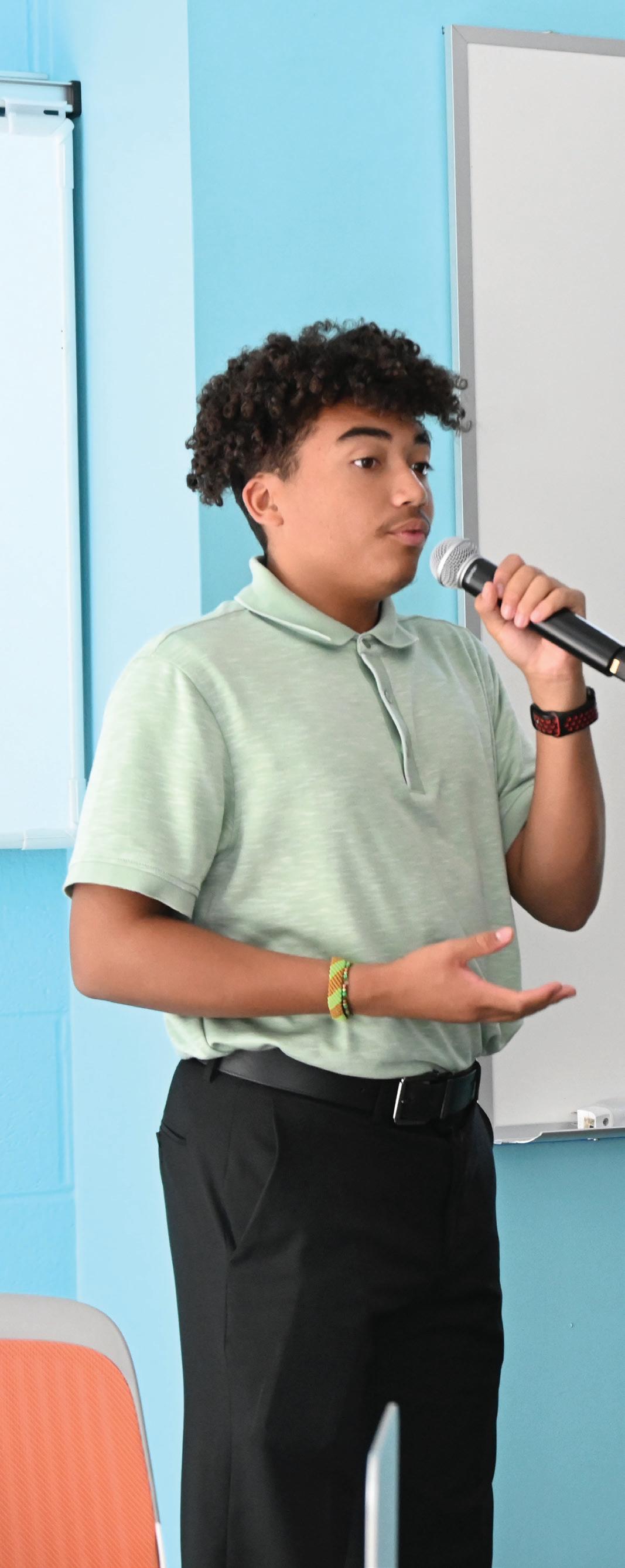

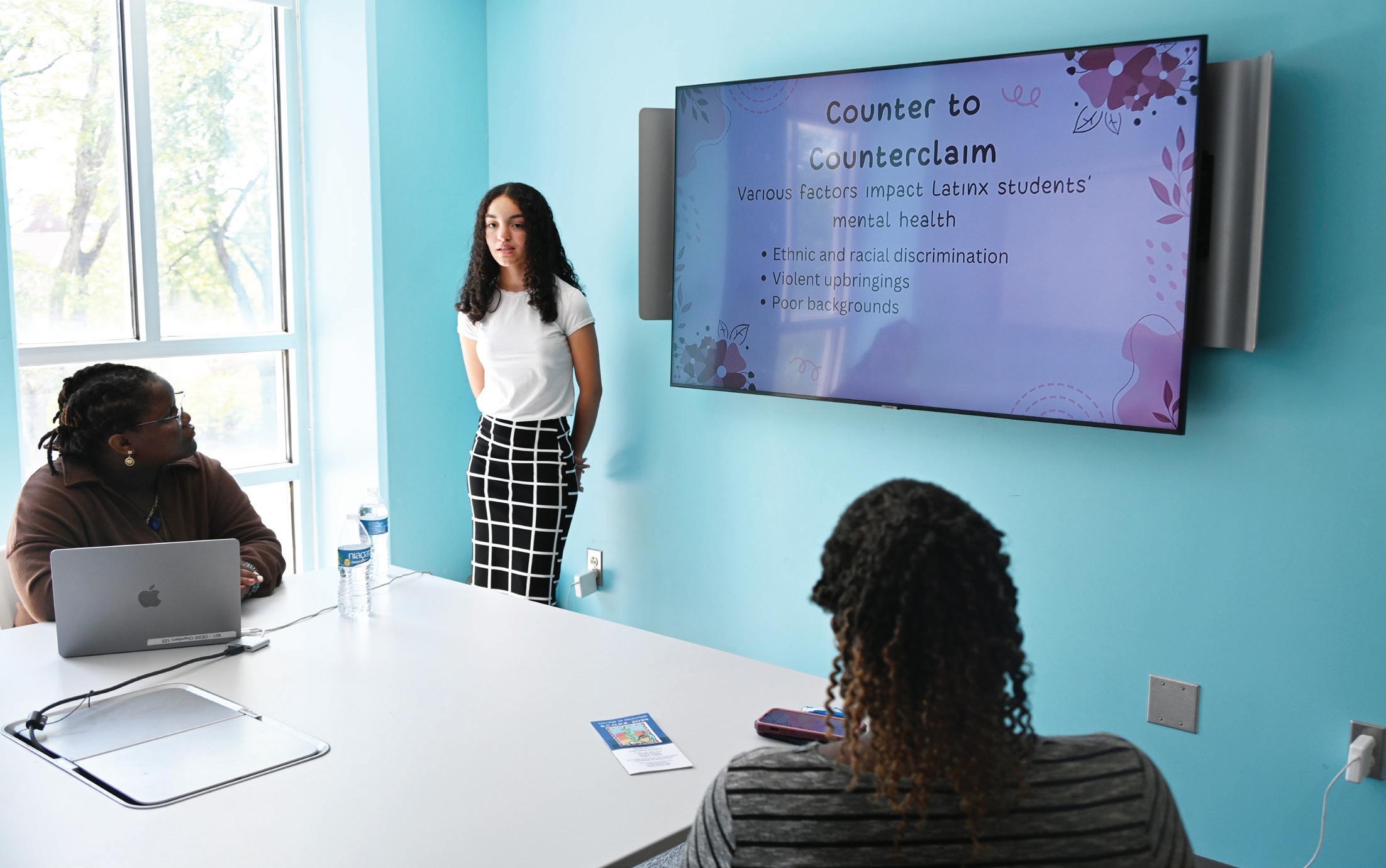
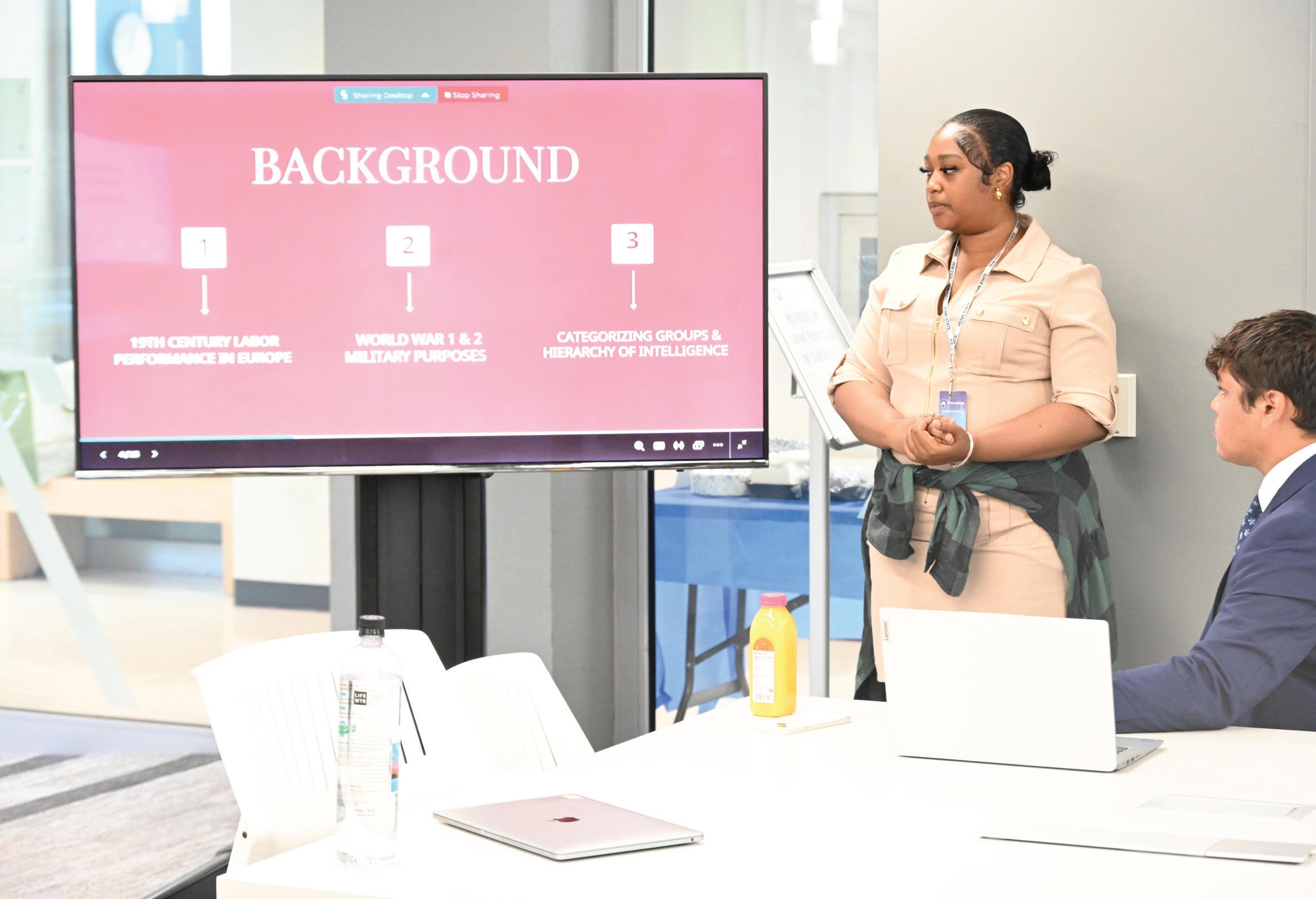



By Kimberly Haig
Ella Seebacher is a third-year Penn State student studying middle-level English education. One day, she hopes to give students the freedom to be creative.
Growing up in Mars, Pennsylvania just outside of Pittsburgh, Seebacher says she had a difficult time in school.
That is until she met an influential teacher her senior year of high school. Darcy Silbaugh showed her a space for her to feel welcome and wanted. Silbaugh is a 2005 graduate of the Penn State College of Education. It’s a relationship that set Seebacher on the path to becoming a teacher.
SCAN OR CLICK THE QR CODE TO READ THIS STORY:
Photos by Peter Terpstra


By Jaden Greenwald
The piercing sound jolted Alexander Kauffman awake.
His surroundings were unfamiliar. His skin was cold. His eyes were heavy.
The bugle horn tore through the crisp dawn air as a group of soldiers felt the pull of slumber slip away.
The third-year Penn State College of Education student had a long way to trek that day in the French
countryside — and he knew what he was in for.
The uniforms, vehicles, and weapons gave the illusion of a world at war, although World War II ended 79 years ago.
This was not an ordinary morning for Alexander, a secondary education social studies major. He was in Normandy, France as part of one of the world’s largest World War II re-enactments.
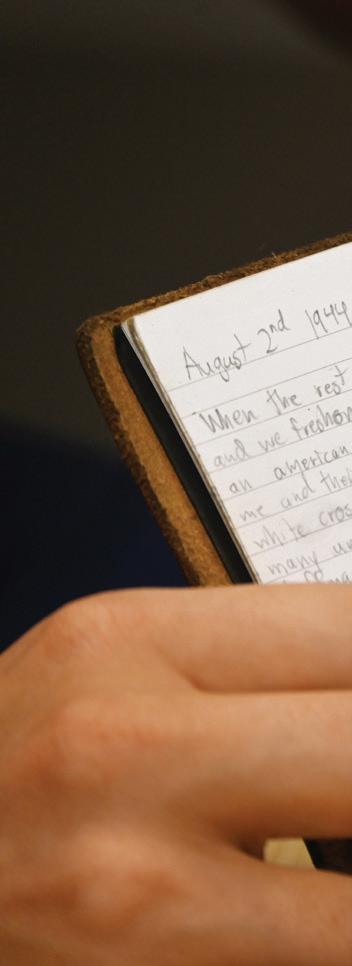


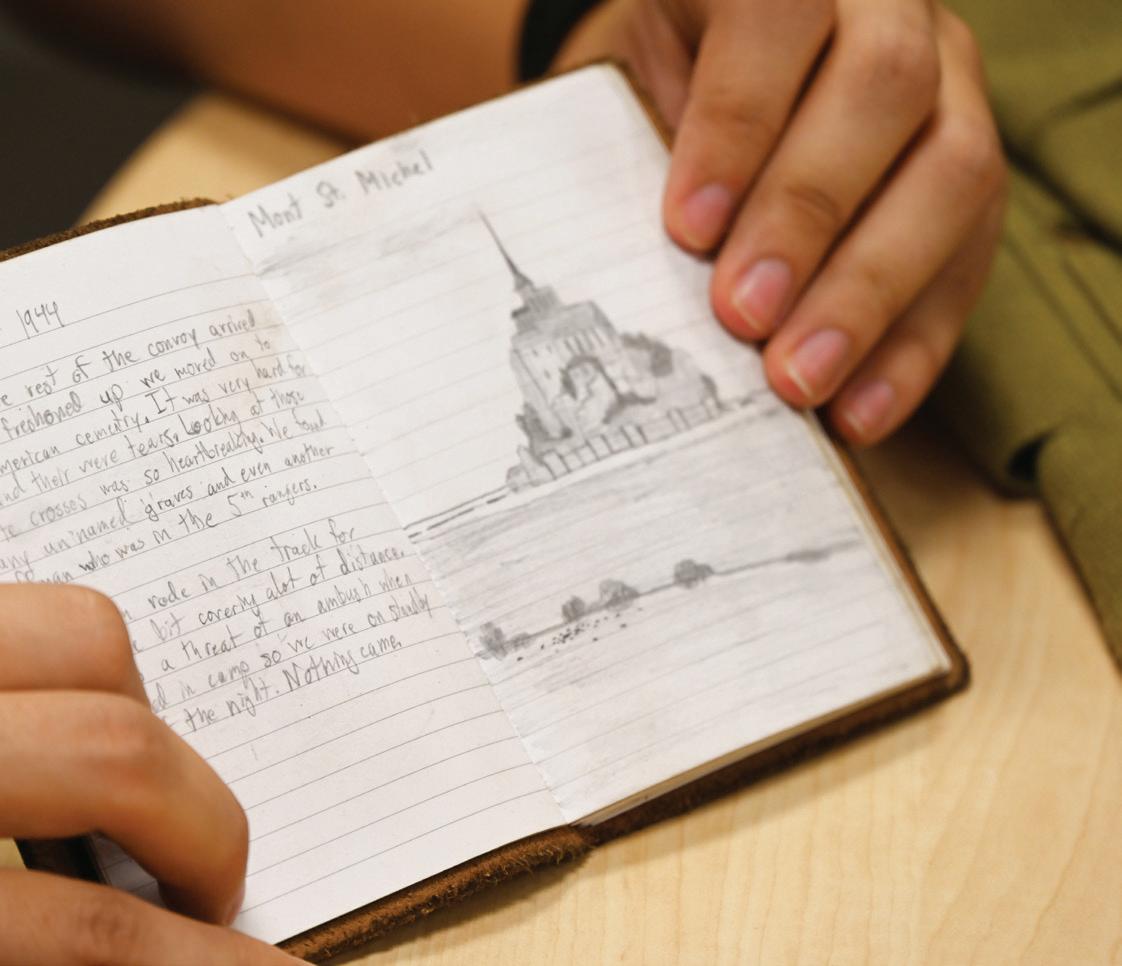
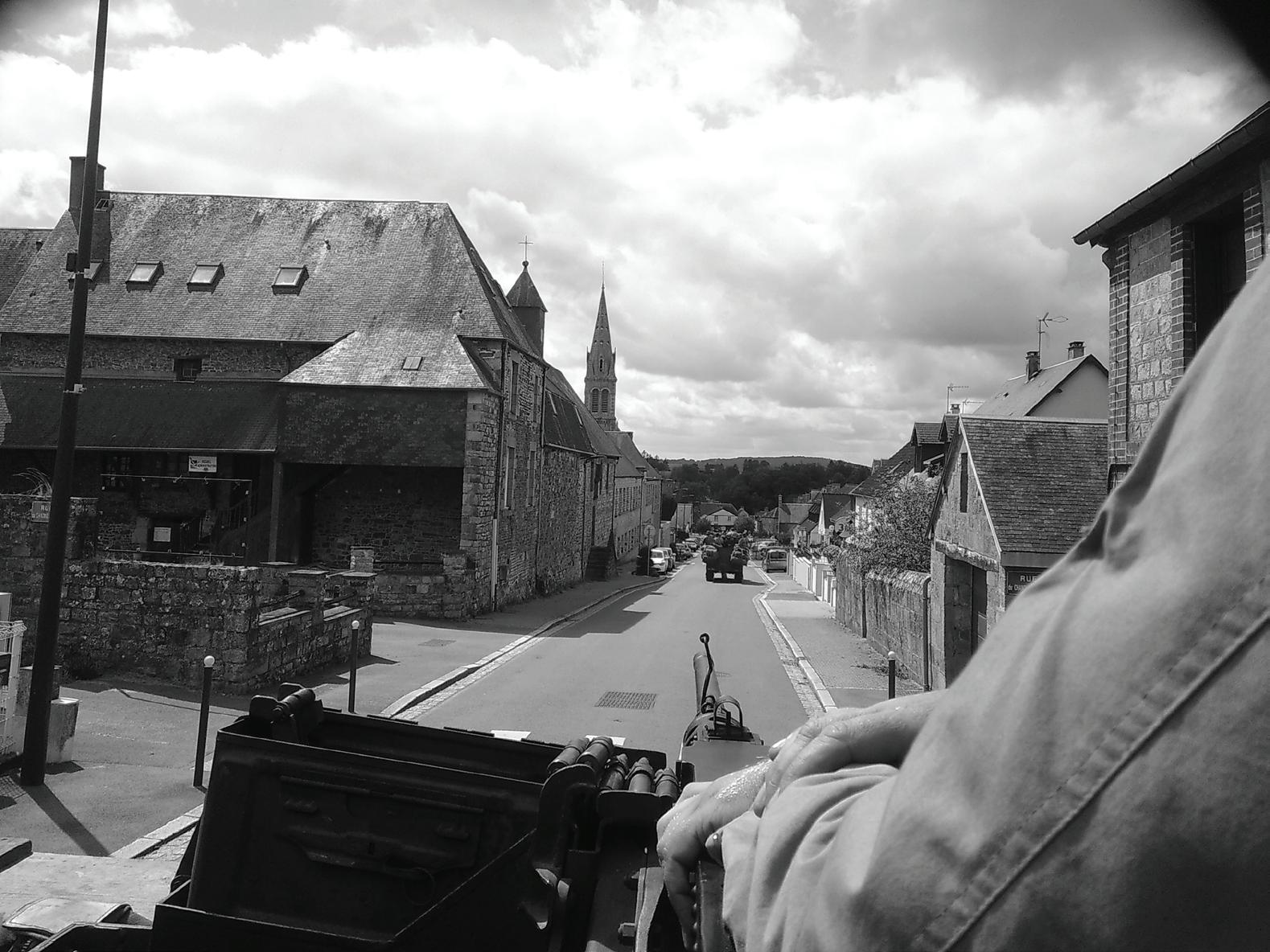
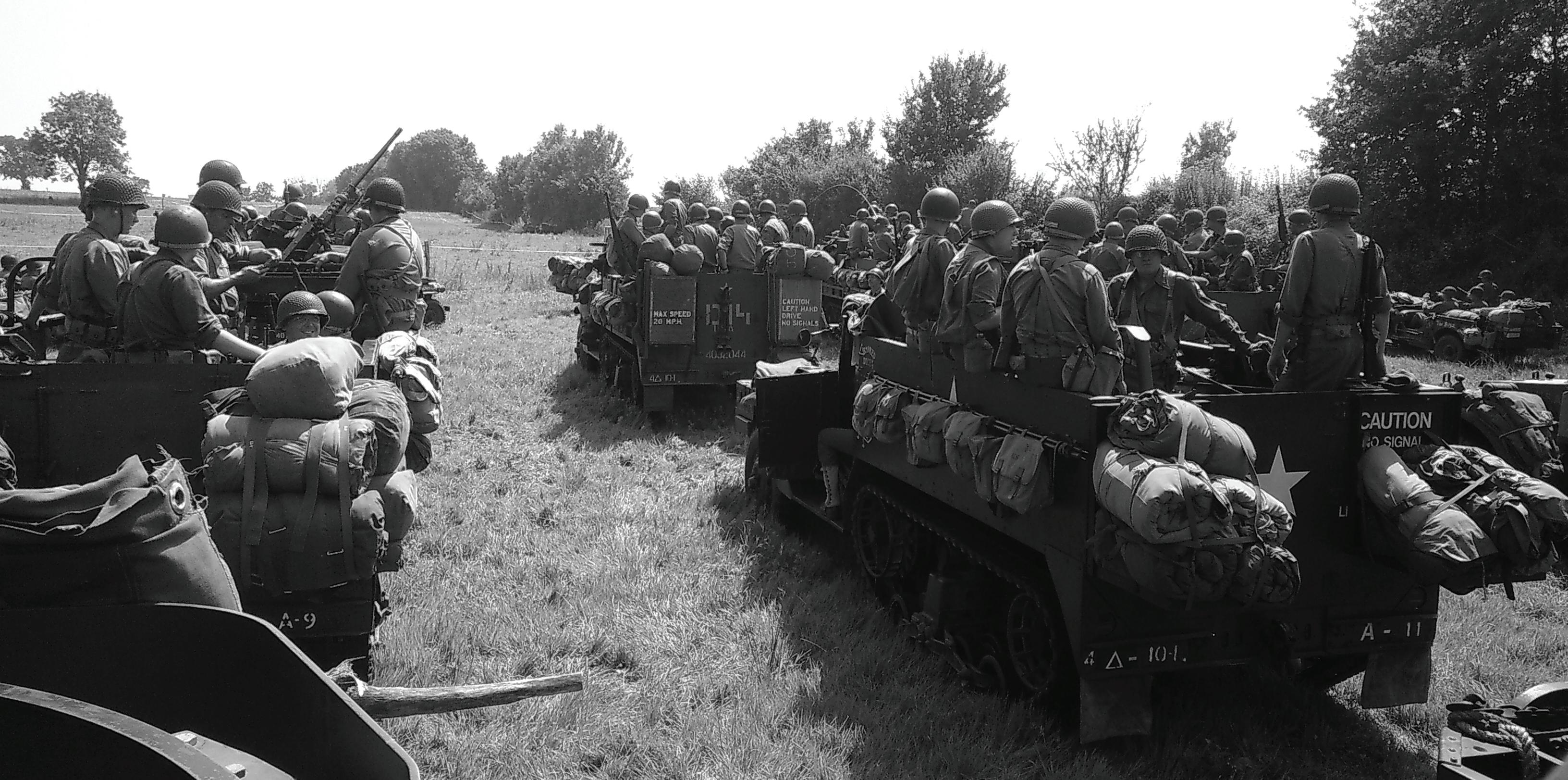








By Stephanie Koons
College is a pivotal time in one’s life, a journey of exploration, growth and self-discovery. Sometimes, however, that journey includes certain challenges — such as navigating a vast array of resources, developing a sense of belonging or addressing academic or mental health issues.
The Penn State College of Education’s Journey Success Center, launched in August 2024, helps students traverse this critical period of life and accomplish their personal and professional goals by empowering them to flourish academically, emotionally and socially.
Known affectionately as “Journey,” the center came to fruition largely through the generosity of Bethesda, Maryland residents Allen and Judith Weltmann, whose daughter Amy struggled in college due to an undiagnosed information processing disorder that affected her ability to take tests, especially those in multiple choice format. Allen is a 1965 Penn State Smeal College of Business graduate.
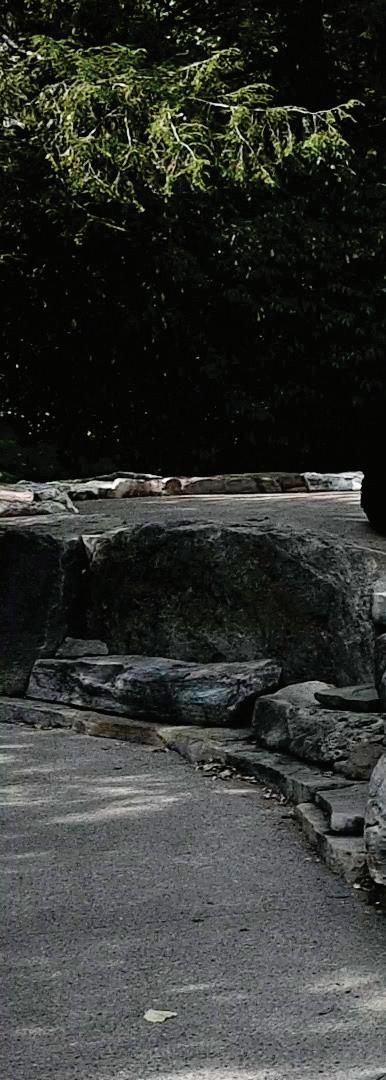

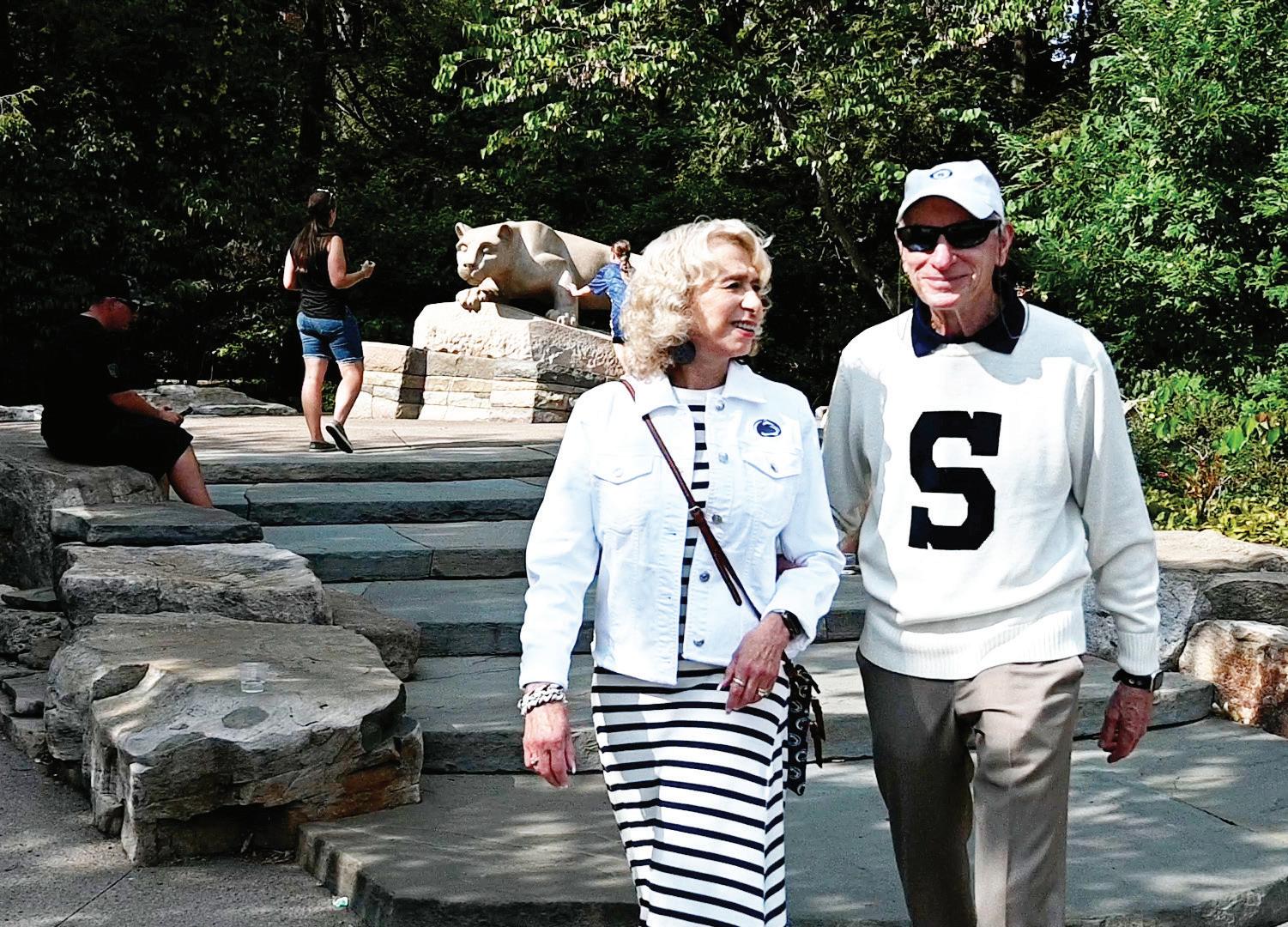

By Brian D. Cox
A ribbon cutting ceremony was held Friday, Nov. 1 to officially dedicate the newest space in the Penn State College of Education — the Krause Pedagogical Innovation Laboratory (PIL).
The space was made possible by a $1.2 million gift from the Krauses and is the third space on the second floor of Chambers Building to bear their name, their previous philanthropy having made possible the original Krause Studios for Innovation and the Krause Learning Space.
Gay, a former teacher and school administrator, received her bachelor of science degree in K-12 elementary and special education from Penn State. She is director of the Krause Center for Innovation at Foothill College in Los Altos Hills, California.


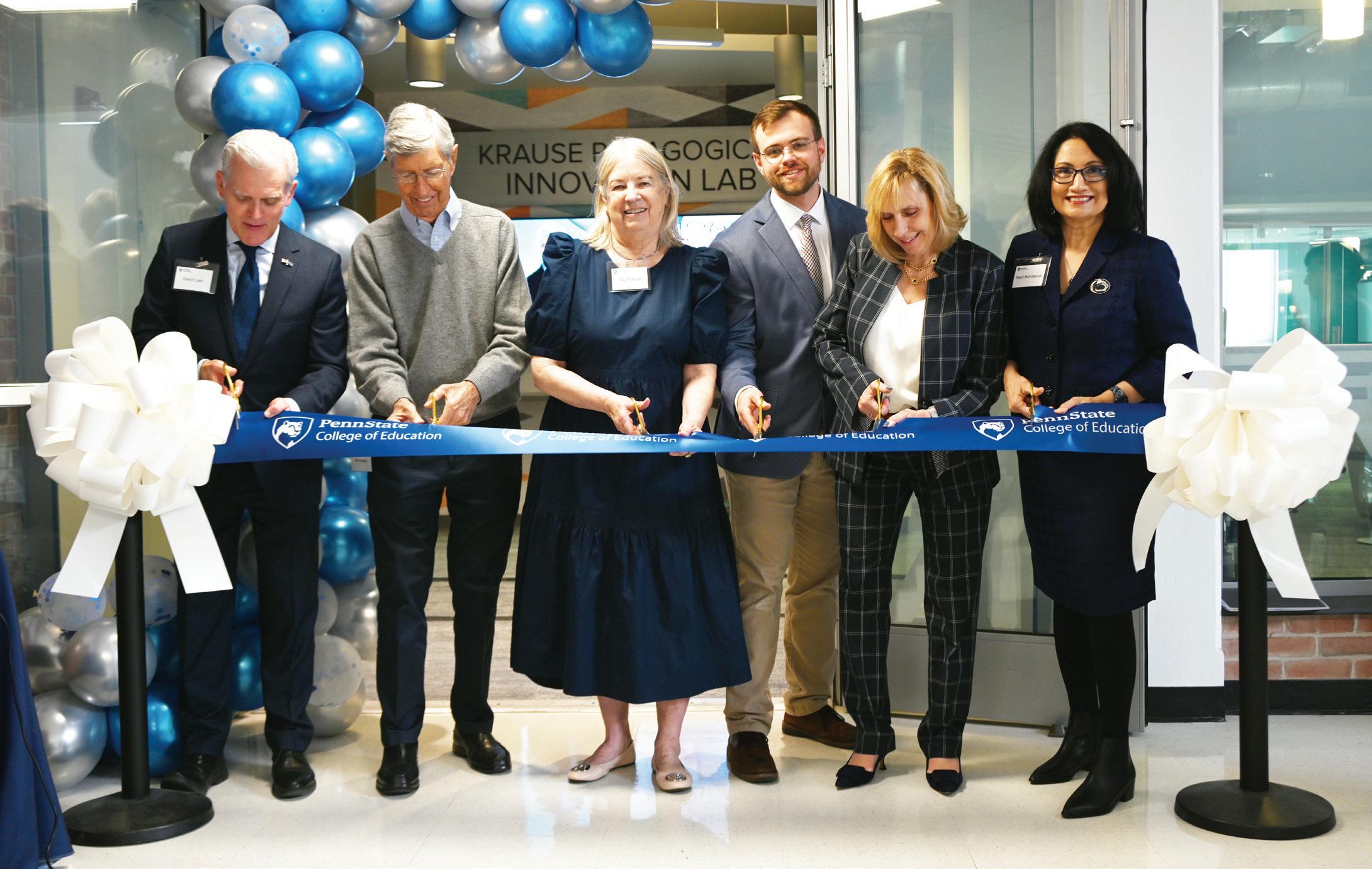
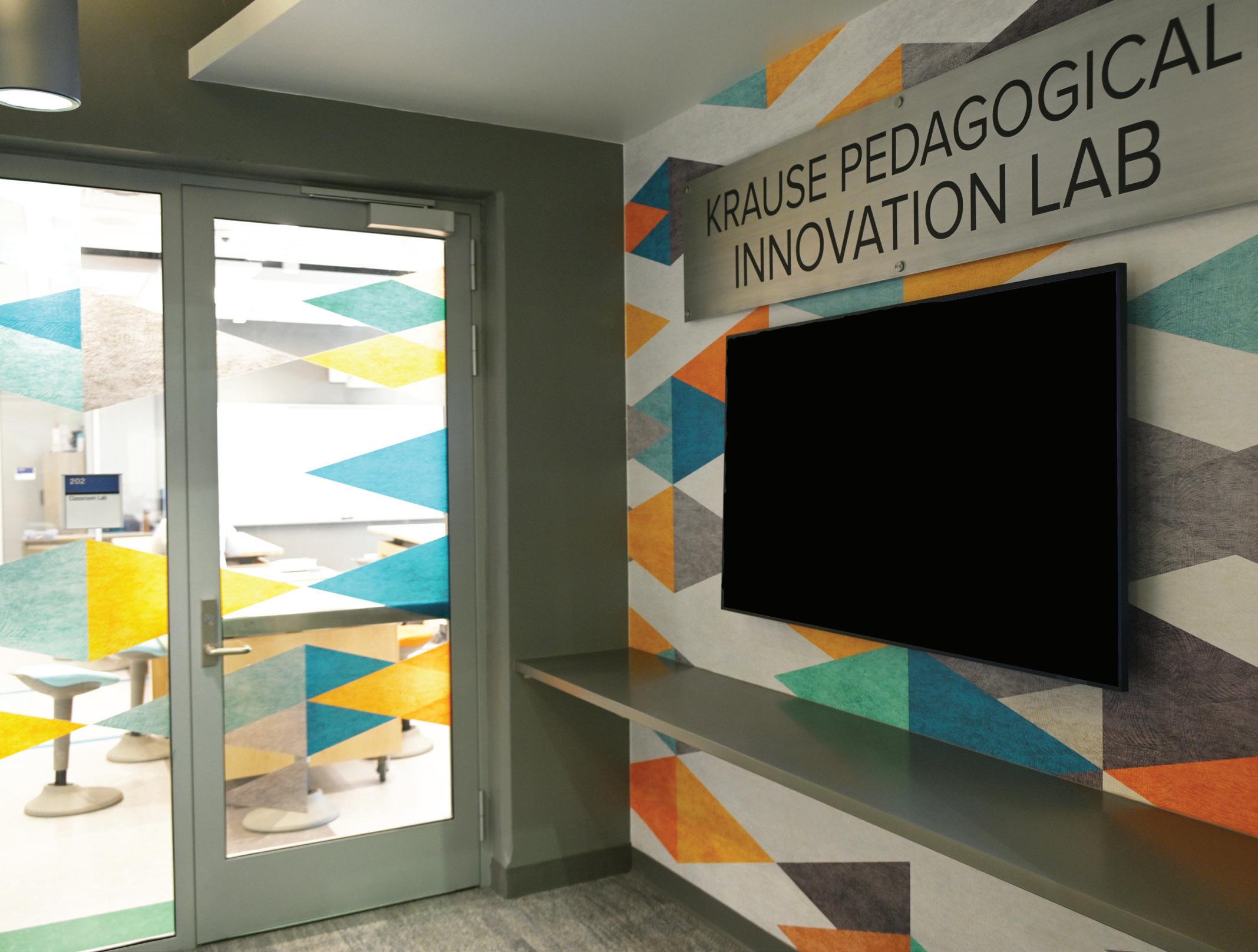
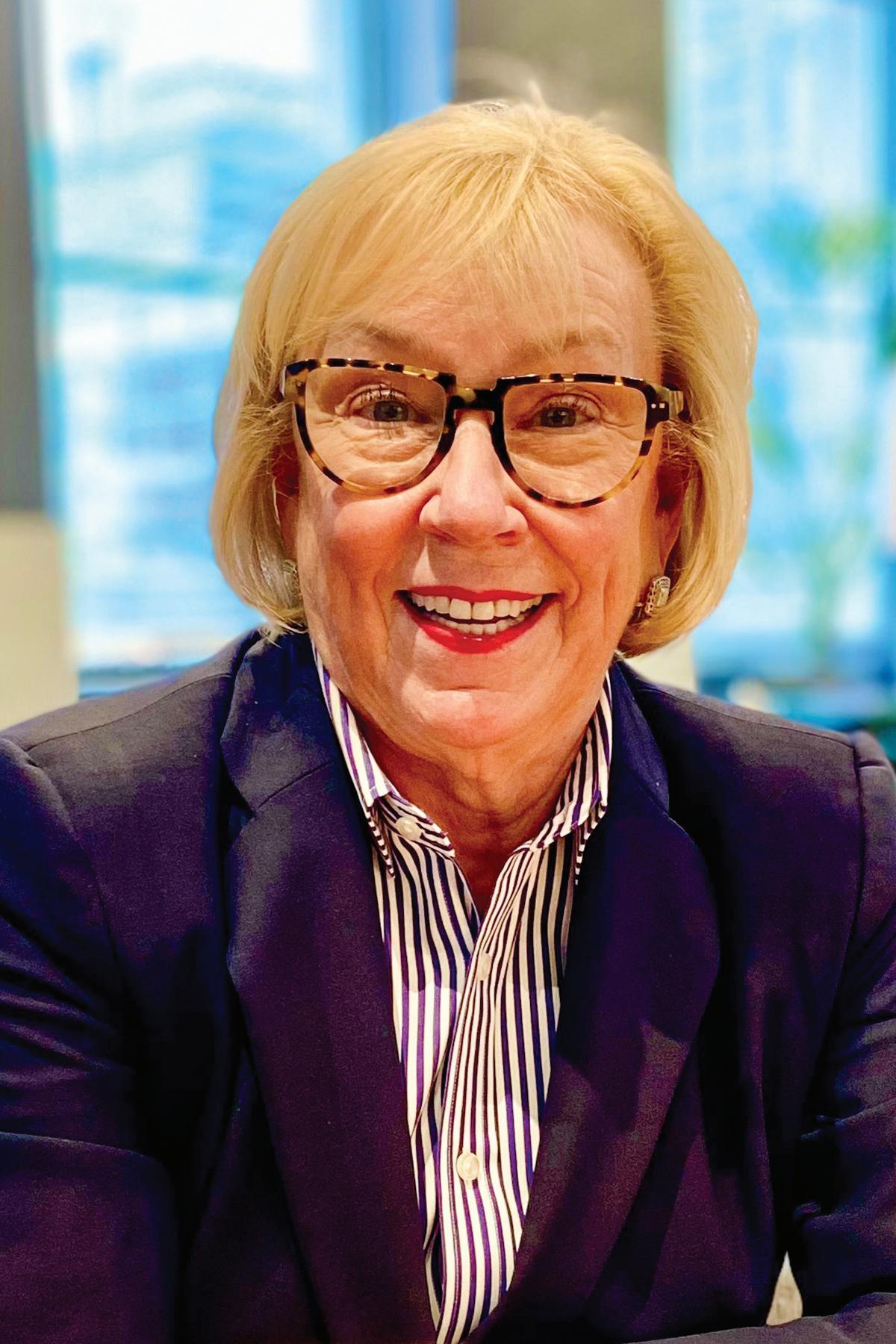
A couple of months ago — the evening of Thursday, October 17, to be exact — I had the pleasure of emceeing the College of Education’s annual Scholarship Dinner. It’s one of my favorite events. It celebrates the power of our college and our philanthropic partners to transform lives. This year was particularly spe -
We all know College of Education students are academically strong. Penn State is a competitive institution, so you definitely have smarts to get accepted. As I engaged with our scholarship recipients, however, I was struck not just by their academic intelligence (IQ), but also by their emotional intelligence (EQ).
Defined as “the ability to recognize, understand, and deal skillfully with one's own emotions and the emotions of others … by showing empathy and good judgment in social interactions,” EQ is an important quality in teachers. It allows them to manage the various, often challenging emotions that arise in students, parents, and even colleagues. It creates safe, productive spaces for learning. It models for students how they can more effectively interact with others. Bottom line…high EQ makes for better teachers!
Seated at my table this year were scholarship recipients Arenia, Madeline, and Zach. I’d met them before at past dinners, so I knew them to be polite — so polite that they rarely
initiated conversation or handshakes. What a change a year makes! One year further into their College of Education experiences, these former “wallflowers” have blossomed into mature, engaged, and actualized young adults — answering questions fully and enthusiastically, asking questions of their tablemates, curious about the people around them. It was a joy to witness.
It's clearer to me than ever that the College of Education’s outstanding curriculum, field experiences, and faculty is the “special sauce” that produces not just high-quality educators, but high-quality human beings. By creating opportunities for young people to learn and grow, we’re creating the professionals who will shape the future of education in this country.
That is why, when we decided this year to endow a new scholarship in the College of Education, we structured it so that the funds awarded would not only follow four students throughout their four years at Penn State, but also grow in size as their expenses increase over time. Because, as donors, we’re doing more than acknowledging IQ. By developing leaders, model citizens, and good neighbors, we’re growing EQ.
For those of you who have created similar impact through your philanthropy to the College of Education, I, with my fellow members of the Dean’s Development Council, thank you for your generous support. For those of you who are interested in learning how you can join this amazing philanthropic community, reach out to Steve Wilson at stw2@psu.edu. He has some creative ideas for philanthropic gifts.
We’d love to help you explore what’s possible when IQ meets EQ!
All the best. BE WELL.
Linda Verba (Elem & K - ’71) Chair, College of Education Dean's Development Council





